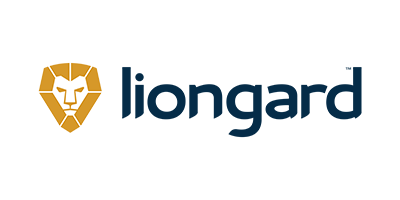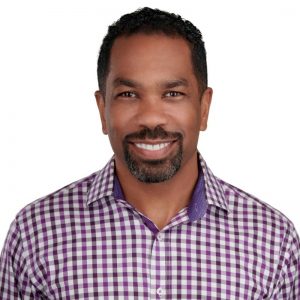Startup life is anything but calm. But in the midst of all the chaos, frenetic pace, and rush to hit milestones, a successful company poised to lead must exude calm. Must take it slow to go fast. You must be mindful.
In today’s post on StartupHeat, I will translate theory into practice by showing how The Mindful Startup Formula has worked for a company that so impressed me, I became one of its early investors and strategic advisors. That company, automated IT management and security software provider Liongard, is an early-stage company that made a strong first impression with people like me by demonstrating a mindful approach to developing its product and business plan.
By following a roadmap very similar to The Mindful Startup Formula – Idea to MVP, MVP to Revenue, and Revenue to Sustainability – Liongard has taken the necessary steps to become a long-term success.

Here’s what hooked me:
Who Is Liongard?
Liongard describes itself as a company “built by Managed Service Provider (MSP) veterans for modern-day MSPs.” Founders Joe Alapat and Vincent Tran have serious technology pedigrees, which makes them both deeply invested in and highly qualified to understand and solve their customers’ IT problems. Both founders had an intimate understanding of the problem having exited an MSP years earlier as operators. And the fact that they previously worked together significantly reduced risk and accelerated traction.
What Does Liongard Do?
Liongard develops software that provides MSPs with visibility into everything running on their networks and reliably automates many tasks that would otherwise require expensive and scarce technology talent to perform. This automation allows MSPs to scale and add more customers of their own. The company refers to its Liongard Roar solution as “automated documentation.”
According to the company, “Liongard is designed to eliminate error and reduce manual labor to help MSPs increase their bottom line.” In other words, they help customers maximize resources to maximize profits.
How Is Liongard Different?
The company and its success are driven by principles and methodology that align perfectly with The Mindful Startup Formula. From the beginning, Alapat and Tran have anchored Liongard with a set of core values that are part of the company’s DNA. They guide every aspect of Liongard’s daily operations (recruiting, product development, marketing/sales, etc) as well as the company’s long-term growth.
Liongard’s inspiring core values fuel a constant cycle of business success:
- Listen and Learn. Liongard engages current and prospective customers and takes in feedback to better understand the problem, understand customers’ unique challenges, and improve the product.
- Adapt and automate. Once they have taken in and prioritized customer feedback, Liongard’s staff changes the way it behaves.
- Execute as a team. The company’s leadership works to ensure everyone assigned to solving a problem is clear on the team’s goal and everyone is laser-focused on achieving it. Or as Alapat is fond of saying, “We want everyone is rowing in the same direction.”
- Focus on visible progress. Liongard minimizes risk by setting incremental milestones – checkpoints that allow the team to measure, share, and assess preliminary results with peers and/or customers and course-correct, if necessary.
- Teach. A major company focus is on teaching customers and peers through regular webinars, workshops, speaking engagements, and other opportunities for individuals and teams to teach/share best practices with one another. With this step, the process comes full-circle and moves back to listening and learning.
How Did The Mindful Startup Formula Work for Liongard?
Liongard first entered the market in 2017 with a more raw and security-focused solution. That solution was the company’s Minimum Viable Product (MVP) and most direct route to revenue. Then during its test, customers identified the need for a more comprehensive solution. The customers began teaching Alapat and his Liongard team more about and helping redefine the problem – one which they thought they already knew.
“Relearning the problem really humbled me because I’ve been in this space a long time, and sometimes you think you know everything,” remembered Alapat. “But as you work with more folks, and you start really digging into the problem, you start to find more fundamental issues.”
So, Liongard took a step back to listen, learn, adapt, and quickly rebuild its solution based on new customer needs and marketplace realities. Here’s how Alapat described it:
“The problem was that while the stack had changed [from a traditional IT environment in the early 2000s of desktops, laptops, and servers to the cloud], the problem was the management tools, the software, and the automation that was there to manage the traditional infrastructure had not kept up.
So, we thought about how to manage things in the cloud, like Office 365, Amazon’s cloud, and Microsoft’s cloud. Plus, you have your entire existing infrastructure and all of these other apps. What happened was the problem had become tenfold, the management tools had not kept up, and our customers had no unified way of looking at things.”
So, Liongard accepted the fact that the problem was now more complex and messy. Alapat and his team sat down and had conversations with customers to better understand their pain and come up with a new way of viewing and managing their entire network infrastructure, apps running on the network, and the cloud. By focusing on customers’ needs, Liongard successfully upgraded the product to give unprecedented visibility across all of it.
It didn’t happen overnight, of course, but guided by the company’s core principles a constant cycle of listening, learning, adapting, and monitoring progress, Alapat and his team have built a hugely successful business fueled by a more robust Liongard solution. In just its first year, Liongard is on pace to go from customer #1 to customer #100. That’s truly scalable growth.
I believe Liongard will be one of the successful SaaS companies in Houston, and I’m excited to have a front-row seat (and minor appearance) in this awesome, high-growth movie!
In our next StartupHeat post, we’ll begin the New Year by discussing how to analyze your market size. Until then, stay curious, focus on the signal, and make mindful decisions on your journey to success!



